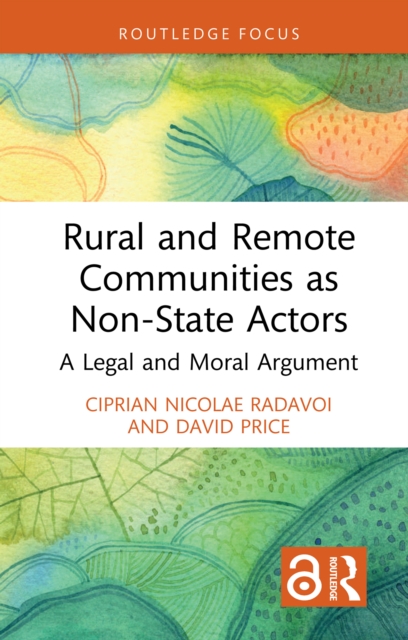
Rural and Remote Communities as Non-State Actors : A Legal and Moral Argument PDF
by Ciprian Nicolae Radavoi, David Price
Part of the Routledge Research in International Law series
Description
While entities as different as armed groups, multinational corporations, political parties, megacities, labour unions, terrorist organisations, or indigenous peoples are mentioned as non-state actors in the relevant literature, rural communities are never referred to.
This book addresses the role of rural communities as non-state actors, lifting this invisibility veil with arguments coming from three theories of/scholarly approaches to international law: positivism, sociolegal realism (the New Haven School), and constitutionalism.
It argues, first, that rural communities are recognised by the community of states as derived subjects of international law since they are made bearers of rights and duties in some major multilateral treaties.
Second, rural communities have the ability to affect international lawmaking as they acquire the tools to influence decision-making in international arbitration and court litigation.
Finally, the book highlights the need to recognise the status of rural communities when seeking global justice, as these are the communities that benefit the least from globalisation, while paying the highest price in terms of damage to the natural and sociocultural environment.
Advocating for the existence of some supreme norms above the will of the states and the recognition of rural communities as non-state actors, this book will be of interest to academics, policy-makers, and non-governmental organisations working in the field of public international law and rural social matters. The Open Access version of this book, available at http://www.taylorfrancis.com, has been made available under a Creative Commons [Attribution-Non Commercial-No Derivatives (CC-BY-NC-ND)] 4.0 license.
Information
-
Download - Immediately Available
- Format:PDF
- Pages:54 pages
- Publisher:Taylor & Francis Ltd
- Publication Date:02/06/2023
- Category:
- ISBN:9781000928051
Other Formats
- EPUB from £15.38
- Hardback from £43.79
Information
-
Download - Immediately Available
- Format:PDF
- Pages:54 pages
- Publisher:Taylor & Francis Ltd
- Publication Date:02/06/2023
- Category:
- ISBN:9781000928051










